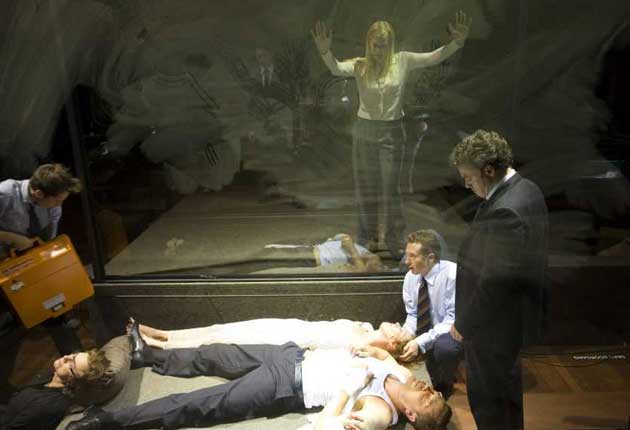Roman Tragedies, Barbican Centre, London
Shakespeare as never before

Your support helps us to tell the story
From reproductive rights to climate change to Big Tech, The Independent is on the ground when the story is developing. Whether it's investigating the financials of Elon Musk's pro-Trump PAC or producing our latest documentary, 'The A Word', which shines a light on the American women fighting for reproductive rights, we know how important it is to parse out the facts from the messaging.
At such a critical moment in US history, we need reporters on the ground. Your donation allows us to keep sending journalists to speak to both sides of the story.
The Independent is trusted by Americans across the entire political spectrum. And unlike many other quality news outlets, we choose not to lock Americans out of our reporting and analysis with paywalls. We believe quality journalism should be available to everyone, paid for by those who can afford it.
Your support makes all the difference.The Barbican stage was turned into a conference centre for three six-hour sessions over the weekend as the Toneelgroep of Amsterdam brought their astonishing and brilliantly staged modern-dress Shakespeare show to London. I'm sorry if you missed it. Here's why.
Running Coriolanus into Julius Caesar and then Antony and Cleopatra – the only intervals were scene changes of between three and 10 minutes – director Ivo von Hove and his company presented the arguments and domestic tiffs of the plays without the battles and public meetings.
That "outer" aspect was redistributed on a running ticker tape, video screens, news interviews and two percussion stations on either side of the stage. The tribunes in Coriolanus, the conspirators in Julius Caesar, the politicians in Antony, all bartered and kvetched like dark-suited EU ministers, erupting like those volatile images we have seen in Spanish and Greek parliaments.
The open-plan furniture of grey sofas, rostra and low tables allowed the actors to move around while supplementary images were projected on a large screen (with surtitles) and the audience wandered through, taking coffee and drinks and sitting on the "set". We were all implicated. I spotted a Young Vic director flopping next to the ghost of Caesar at Philippi.
You could stay on stage and read a newspaper, check your emails, or go back to your unreserved seat. The domestic scenes of Volumnia and Virgilia waiting for the soldier's return were pregnant with anxiety. The wives of Caesar and Brutus had their scenes with their men interleaved to stunning effect before the assassination. The last hours of Cleopatra were played in sexy, tear-stained close-up like a Bergman movie.
Each murder victim, each suicide, was captured in freeze frame on an upstage chute, spread-eagled like a gunned down Mafioso. Cassius and Octavius were played by women, making something different and special of their respective relationships with Brutus and Antony. As the latter, Hans Kesting had broken his leg in Amsterdam last week and played, heroically, in a wheelchair and plaster cast.
Each text was severely but cleverly edited by Tom Kleijn and Von Hove, the stage finally cleared of bars and international newsreels – Iraq, Palestine, Olympic swimming races – to focus on the last rites of power and love in Egypt. Many of the techniques were familiar in modern production. But the overall scope of this wonderful project was impressive because of the acting quality of Toneelgroep. It made you want to go straight on to Amsterdam and catch the rest of their repertoire.
Join our commenting forum
Join thought-provoking conversations, follow other Independent readers and see their replies
Comments